The Rodale Institute California Organic Center recently started a new research project: Replacing Plastic Mulch with Cover Crops in Organic Vegetable Production Systems for Economic Benefit, Soil Health, and Environmental Stewardship. Supported by a California Department of Food and Agriculture (CDFA) grant awarded in January, the study will examine cover crops and living mulches as a replacement for plastic mulch in organic strawberry and artichoke production.
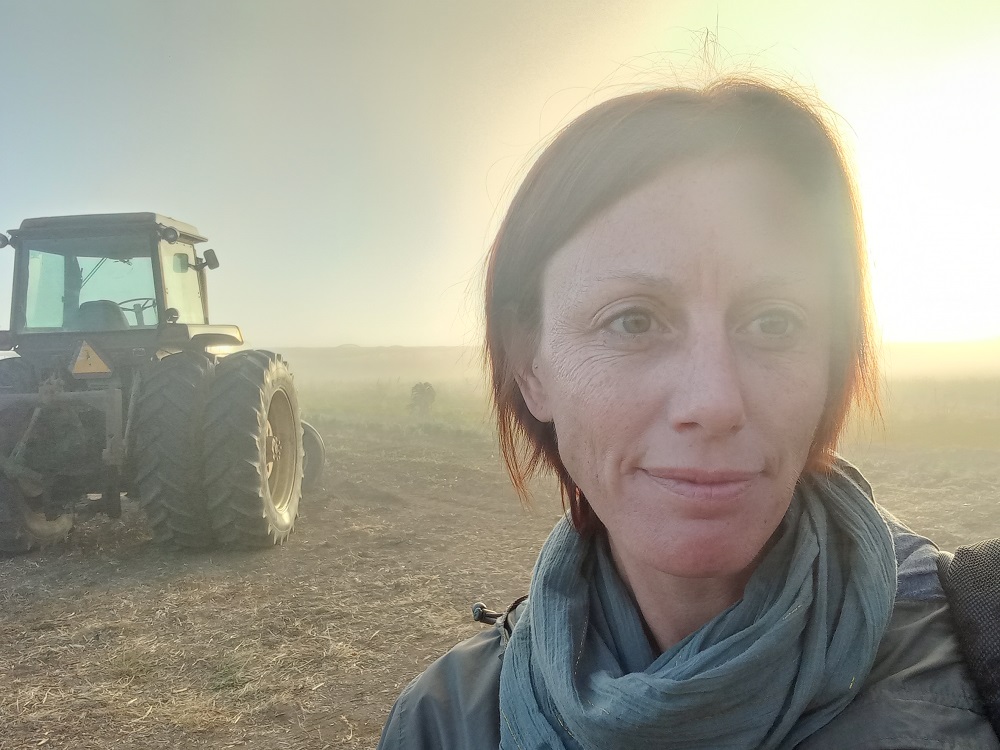
Dr. Arianna Bozzolo, Research Director, Rodale Institute California Organic Center
“As demand for organic fruits and vegetables continues to increase on the local and national level, more acres in California will transition to organic agriculture—thus the use of plastic mulches in vegetable production systems will increase,” says Dr. Arianna Bozzolo, research director of the California Organic Center. “Extensive use of plastic mulches in food production systems … has created massive concerns about the long-term sustainability of using this input. It is critical to find more effective yet environmentally friendly alternatives [to] plastic mulches to facilitate weed management in organic and conventional production systems.”
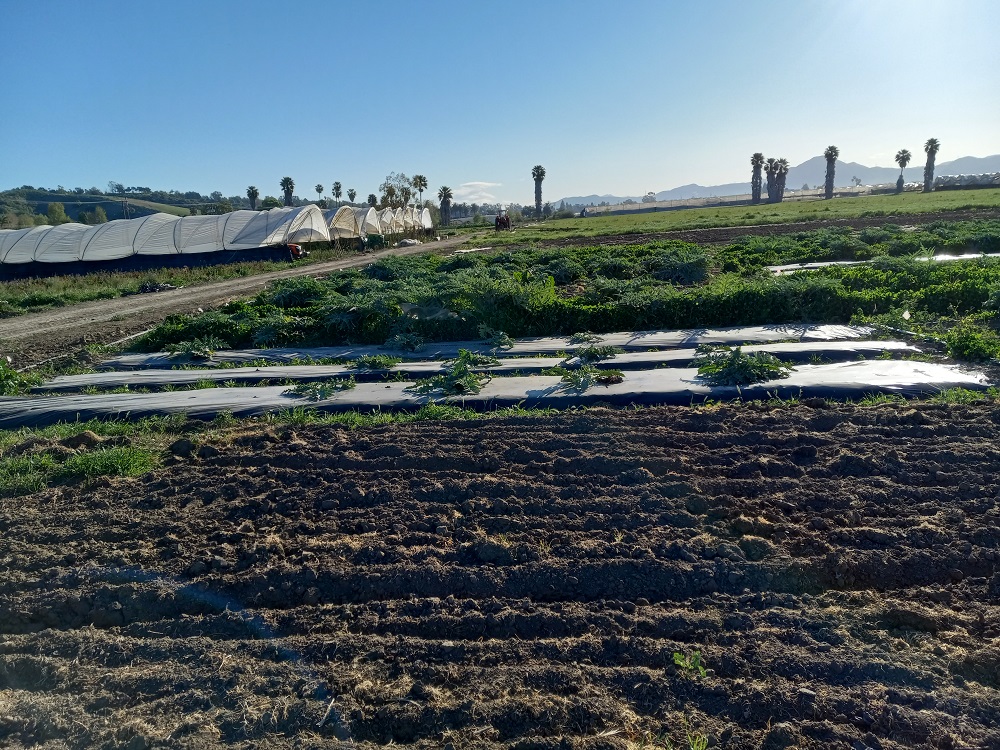
Field with black plastic mulch, Rodale California Organic Center
“In this project, we are proposing a novel approach that relies on using living mulches and cover crops as an alternative to plastic mulch in organic production systems,” Bozzolo explains. “Using cover crops and living mulches will also eliminate the need for frequent soil tilling, thus allowing vegetable producers to adopt no-till and minimum tillage systems, which will further enhance sustainability in these production systems.”
“It is critical to find more effective yet environmentally friendly alternatives [to] plastic mulches to facilitate weed management in organic and conventional production systems.” - Dr. Arianna Bozzolo
The research project will span three years and take place in Camarillo, CA, on McGrath Family Farm, where the Rodale California Organic Center is located. In late March, Bozzolo and her team kicked things off by seeding the strawberry cover crop—a mix of sorghum and buckwheat—which will be terminated in a few months with a roller crimper (an invention of the Rodale Institute). The strawberries will then be transplanted directly into the cover crop residue and intercropped with clover, which will serve as a living groundcover.
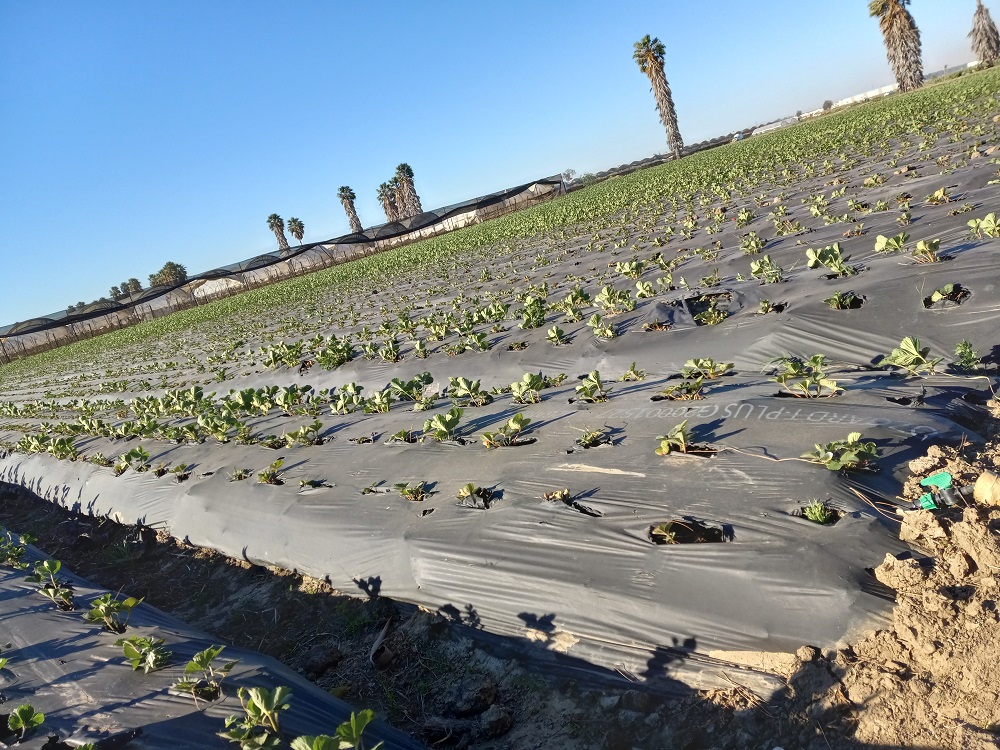
Organic strawberry field with black plastic mulch, Rodale California Organic Center
Later this year, the artichokes will be transplanted into the residue of a buckwheat cover crop (also terminated by a roller crimper) and will be intercropped with a living clover groundcover. “Although we will focus on artichokes and strawberries in this project, the project findings will be applicable to all other vegetable production systems that rely on the use of plastic mulches,” says Bozzolo.
Bozzolo and her team will conduct multiple replicated trials over the three-year period and will assess how cover crops, living mulches, and no-till/reduced tillage affect strawberry and artichoke growth, yield, and quality as well as soil health, irrigation water use, and weed suppression.
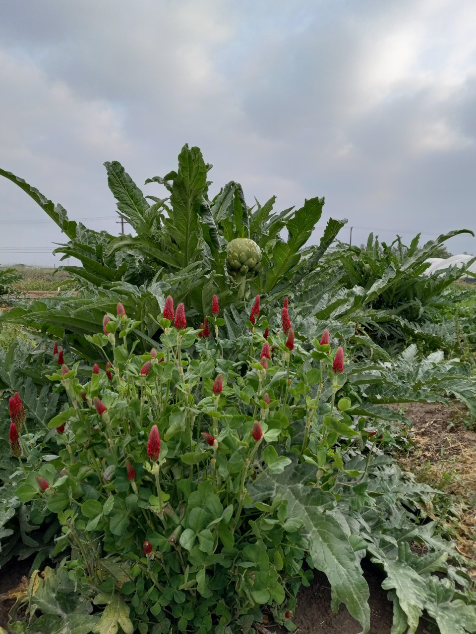
Organic artichokes intercropped with clover, Rodale California Organic Center
“We will also conduct an economic analysis to evaluate the economic feasibility of artichokes and strawberries production using cover crops and no-till compared to conventional systems that rely on plastic mulch and extensive tillage,” says Bozzolo. “Cost/benefit analysis of using living mulch and no-till versus plastic mulch and conventional tillage will include all direct and indirect costs associated with the use of machinery, labor, and inputs in each system.”
“Although we will focus on artichokes and strawberries in this project, the project findings will be applicable to all other vegetable production systems that rely on the use of plastic mulches.” - Dr. Arianna Bozzolo
“Our ultimate goal,” explains Bozzolo, “is to provide an economically viable and environmentally friendly alternative to plastic mulch for effective weed control in organic vegetable systems. The proposed cover crop and living mulch system combined with reduced tillage will greatly improve the viability and sustainability of organic vegetable production systems by improving farmers’ income and reducing plastic waste from farms.”
In addition to conducting the strawberry and artichoke trials, the California Organic Center will offer two field days, two webinars, two web articles, newsletter updates, conference presentations, and farm visits related to this research project.
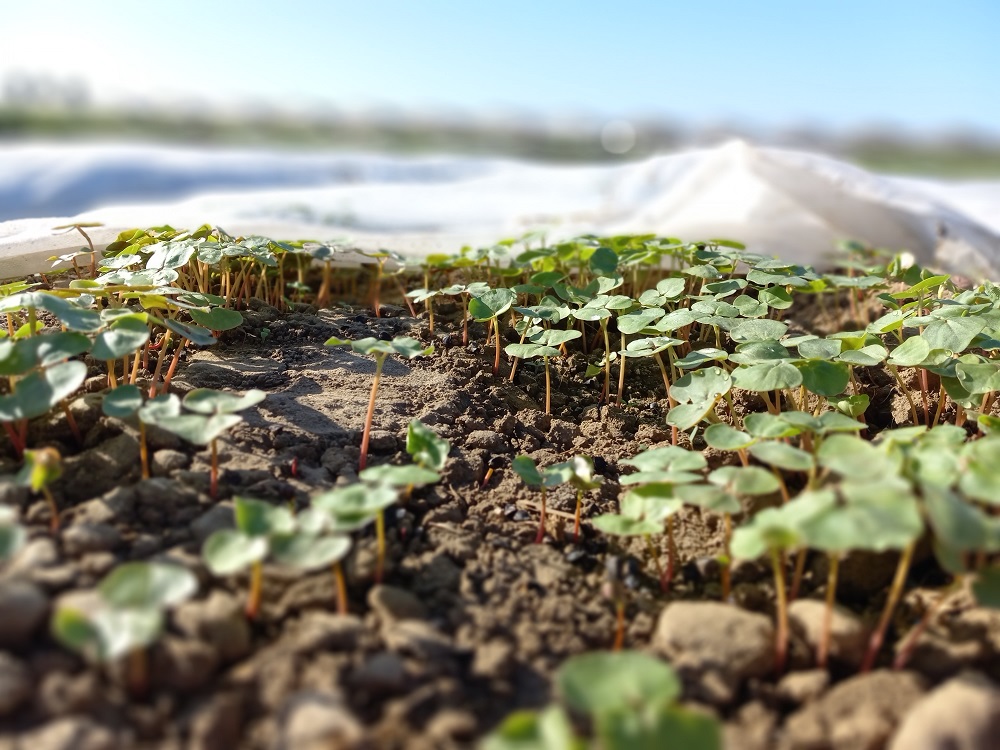
Buckwheat cover crop, Rodale California Organic Center
Founded in 2019, the Rodale Institute California Organic Center (RI-COC) is a research and education hub that offers technical assistance, regional research solutions, field days, and educational opportunities for farmers and those interested in regenerative organic agriculture. Headquartered at the McGrath Family Farm in Camarillo, CA, the RI-COC operates in collaboration with Phil McGrath and is supported by start-up funding from Ventura Seed Company.
“Our ultimate goal is to provide an economically viable and environmentally friendly alternative to plastic mulch for effective weed control in organic vegetable systems.” - Dr. Arianna Bozzolo
“The vision of the RI-COC is to become a leading source of knowledge for a sustainable and innovative western horticulture industry through world-class research and education programs that [provide] viable solutions to farm needs and address critical environmental issues within the region as they relate to soil health and water quality,” says Bozzolo. “The RI-COC will serve as a model to inspire land stewardship and regenerative organic agricultural practices.”
For more information on the Rodale Institute California Organic Center, please click here.






